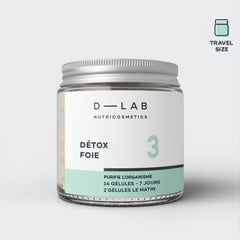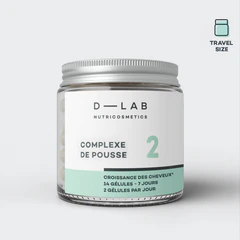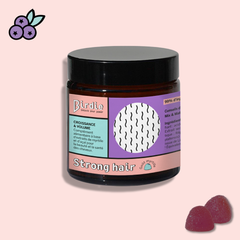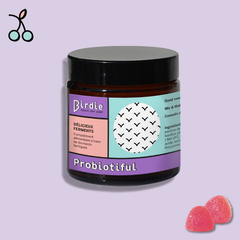Seasonal changes, the stresses of everyday life, unsuitable cosmetics, repeated hair styling and coloring, hormonal disturbances.
Our hair is subjected to daily aggressions that weaken and thin it, eventually causing it to fall out.
Of course, it's not just these factors: there are others, such as diet, which these days is impoverished and no longer provides the quantity of nutrients needed to build hair fiber.
Find out in this article how to Prevent hair loss with the right diet and hair supplements.
Read also: Which foods cause hair loss
I. Hair composition
Hair is 95% keratin.
Keratin is a so-called "fibrous" protein, i.e. one that plays a structural role: it forms part of the body's tissues and serves as the basis for the manufacture of enzymes and hormones. Its main role is protective.
Keratin is composed of B vitamins, trace elements, minerals and sulfur-containing amino acids.
Vitamin B5 limits hair loss, accelerates hair growth and acts to protect cells, vitamin B9 acts to repair cells and vitamin B8 stimulates hair growth.
Zinc protects against oxidative stress, while iron and magnesium transport oxygen to the cells.
This is essential to stimulate blood microcirculation in the scalp, providing the hair bulb with all the nutrients it needs for healthy hair.
Finally, methionine combats the body's ageing process and strengthens hair by containing sulfur, an element essential to keratin.
Cystine's action is coupled with that of zinc, contributing to protein and collagen synthesis. It helps absorb calcium, one of the factors required to form collagen, and lysine stimulates hair growth.
In short, these are nutrients that you can find in the diet and that enter into the composition of hair. When the intake is insufficient, when you have deficiencies in vitamins responsible for hair loss, your hair is weakened, you can observe a loss of shine and a loss of mass.
II. Causes of hair loss
Hair loss isn't always linked to diet. In fact, these days we're subjected to many daily aggressions.
Stress and hormonal imbalances have their share of guilt. Cortisol is the stress hormone, triggered when we are subjected to daily stress.
Its role is to help us prepare to cope with the stress we experience. However, when stress is too great and constant, it can become chronic and its level remains too high.
Its secretion causes the hair follicles and blood vessels to shrink, and the hair fiber is no longer properly irrigated, so nutrients are no longer supplied in sufficient quantities, and hair becomes fine, brittle and eventually falls out.
1. Genetic pathologies :
Then there's the fact that we're not all equal, and that genetics has its say.
There are genetic pathologies such as alopecia. It is more common in men than in women.
In fact, it's an excess of male hormones: testosterone, which accelerates hair growth and modifies the hair cycle, which has three phases.
The first phase is the Anagen phase, a growth phase that can last from 2 to 5 years. With age, this phase becomes shorter and shorter.
The second phase is called Catagen. It concerns only 3% of our hair and is considered a "sleep" phase, since the hair no longer grows. However, it remains attached to the hair follicle.
The third and final phase is the Telogen phase. This is a resting phase, affecting 12% of hair. The hair does not grow, but remains attached to its follicle for a period of 6 to 7 months, until it eventually falls out and makes way for the creation of a new hair.

In the case of alopecia, the bulb tires more quickly and eventually atrophies, creating areas of fine hair with fewer hairs. Once the hair dies, "empty" areas can be observed.
2. Hormonal imbalance :
Finally, there are the hormonal disorders that occur during menstrual cycles, pregnancy, childbirth, breastfeeding or menopause.
Since hair growth is linked to the action of estrogen, when these hormones drop, hair falls out too.
Let's take the example of pregnancy: throughout the conception stage, our hormones are at work, their production is increased.
Thanks to estrogen, we have beautiful, silky, shiny hair, and when we give birth we lose all these benefits.
Progesterone and estrogen levels drop, causing severe hair loss. Most women experience hair loss during certain hormonal disturbances, and this is perfectly normal. It is generally regulated automatically at the end of the menstrual cycle, for example.
However, during the menopause, estrogen production stops abruptly, which can cause hair to thin. For some, it grows back; for others, it's a catastrophe. That's why there are cosmetics adapted to this problem.
II. Solutions
1. Feeding

As a first step, you can change your lifestyle for a balanced, healthy and varied diet.
Bring seasonal fruits and vegetables, rich in vitamins and minerals, for a colorful plate!
Opt for complex rather than refined carbohydrates, which contain fewer simple sugars and more fiber. According to recent studies, refined sugars and processed products can provoke hormonal reactions responsible for hair disorders.
We also recommend that you consume good fatty acids, rich in essential omegas that are not produced by the body but must be supplied by the diet.
Oilseeds such as walnuts, hazelnuts and almonds, vegetable oils and oily fish are rich in omega 3 and 6. They have many antioxidant and cholesterol-lowering properties, for example. You can also include vegetable or animal proteins for their high amino acid content.
Read also: Hair loss, natural solutions
2. Anti-hair loss dietary supplements
If diet isn't enough, you can supplement your diet. At D-LAB, we offer 100% natural food supplements, free from nanoparticles, controversial substances and animal testing.
Our aim is to provide your body with all the nutrients it needs, in the right proportions and at the right quality. That's why we've developed a hair range, with the help of a scientific committee, to respond to a wide range of issues.
To alleviate hair loss problems, our Absolu de Kératine is ideal for providing high-quality keratin, thanks to molecules of different weights that promote assimilation and thus strengthen the hair fiber. Once drawn from the bloodstream, these keratin plaques stack up at the level of the hair bulb, cementing the hair fiber and considerably reducing hair loss.
Our formula contains cynatine, a patented, natural active ingredient similar to that produced by humans.
Read also: Why take a Keratin cure?
In the case of hormonal hair loss, our Hair Mass Program is the answer you've been waiting for.
We offer you 3 products for synergistic action on several issues to reduce hair loss, regulate the hormonal activity responsible for hair loss, reactivate hair growth and reoxygenate the scalp. Thanks to targeted active ingredients, you gain hair mass and a rebalanced body.
We recommend 3 months of treatment to activate your hair's cellular memory, knowing that a cellular life cycle lasts 28 days. You'll see more visible, long-term results.
Routine In & Out
Don't hesitate to optimize your inner routine with an outer routine.
Choose gentle, natural shampoos that are adapted to your specific needs, such as an anti-hair loss shampoo to which you can add a few drops of ylang-ylang essential oil to stimulate hair growth.
Don't hesitate to slow down hair loss by massaging your scal p for a few minutes to reactivate blood circulation.
Thanks to all these tips, you can stop hair loss and regain beautiful hair for your greatest satisfaction.








